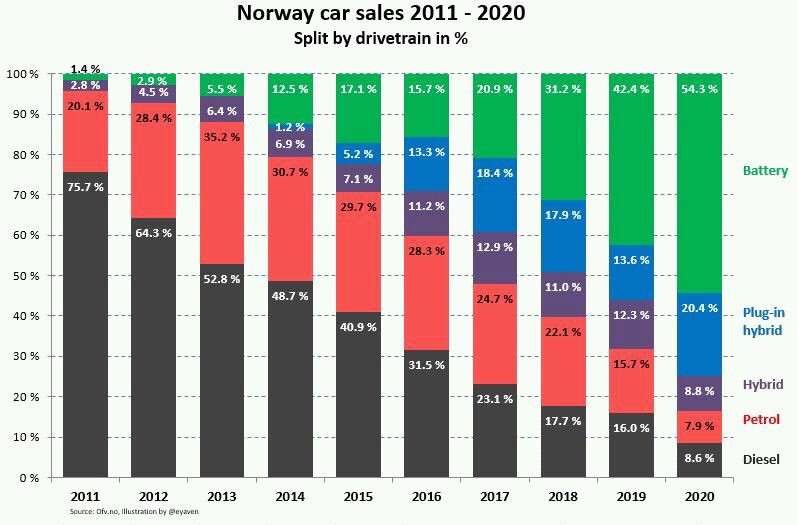Rooftop Solar, Electric Vehicles and Lithium-ion Batteries
By Mr. Umair Nabeel, Renewable Energy and Environment Entrepreneur
Following on from the January 2021 article, more data, news and tons of information spelling out some really interesting details on electric vehicles, lithium-ion batteries (the power engine of EVs ) has flooded the market. In turn enabling and strengthening the consumer to make a more informed and well thought out switch towards a sustainable, smarter and environmentally friendly lifestyle. And this is what we call a “Smart Home”. A building block of “smart cities” which holds a major stake in combating climate change, major brunt of which is faced by the urban population(cancerous poor air quality/air pollution) .
Global News Desk: So let’s delve into the information bank like news from around the world to get to grips with the notion I have put forward in the opening paragraph of my article. Citing the latest report by OFV, it is now official that Norway has completed the flip over a ten year period with 2020 recording approximately 75% of all new car sales being electric vehicles (BEV + PHEV). Take that back to 2011 and it was a mere 1.4% with diesel and petrol vehicles standing around the 96% mark. This should be a reasonable case study for governments around the world to ascertain the time period from policy to actual on ground deliverables.

Nestlé, the world’s largest food company has put pen to paper with South Pole, a company providing consultancy services on renewable energy policy, transition, carbon credit and off setting, regulatory adaptation to basically help the multinational corporation devise and implement the transition to net zero emissions encompassing all global sites. Again, a good case study for the business community in Pakistan to refer to.
Toyota has launched a new battery electric vehicle, “C+Pod”. A low base, compact two seater with a neat finish and look offering a range of 150km based on a 9kwh li-ion battery. Let’s put a 10% depreciation figure on it based on different terrains globally, still the car offers a unique set of applications and opportunities encompassing the entire market, whether it be the end user or a corporate entity/organization. Fleet, courier, ride share delivery cabs amongst other to name. It’s worth mentioning here that the current road test metrics have been classified as “WLTC mode class 1 test cycle” and certified by Japan’s Ministry of Land, Infrastructure, Transport and Tourism.
Let’s conclude this article with a recent installation I came across in Cambridge UK, courtesy an industry senior/ peer and who’s a constant learning source for me. I’ll quote the head of one of their partner companies who carried out this installation “ Q-cell solar panels on a pitched roof, the garage housing the Solaredge HD wave inverter complete with EV charging point backed up by Giv Energy’s lithium-ion battery storage system model 8.2 . A beautiful sub-urban home in CB 23 area of Cambridge, is now a “SMART HOME”.







